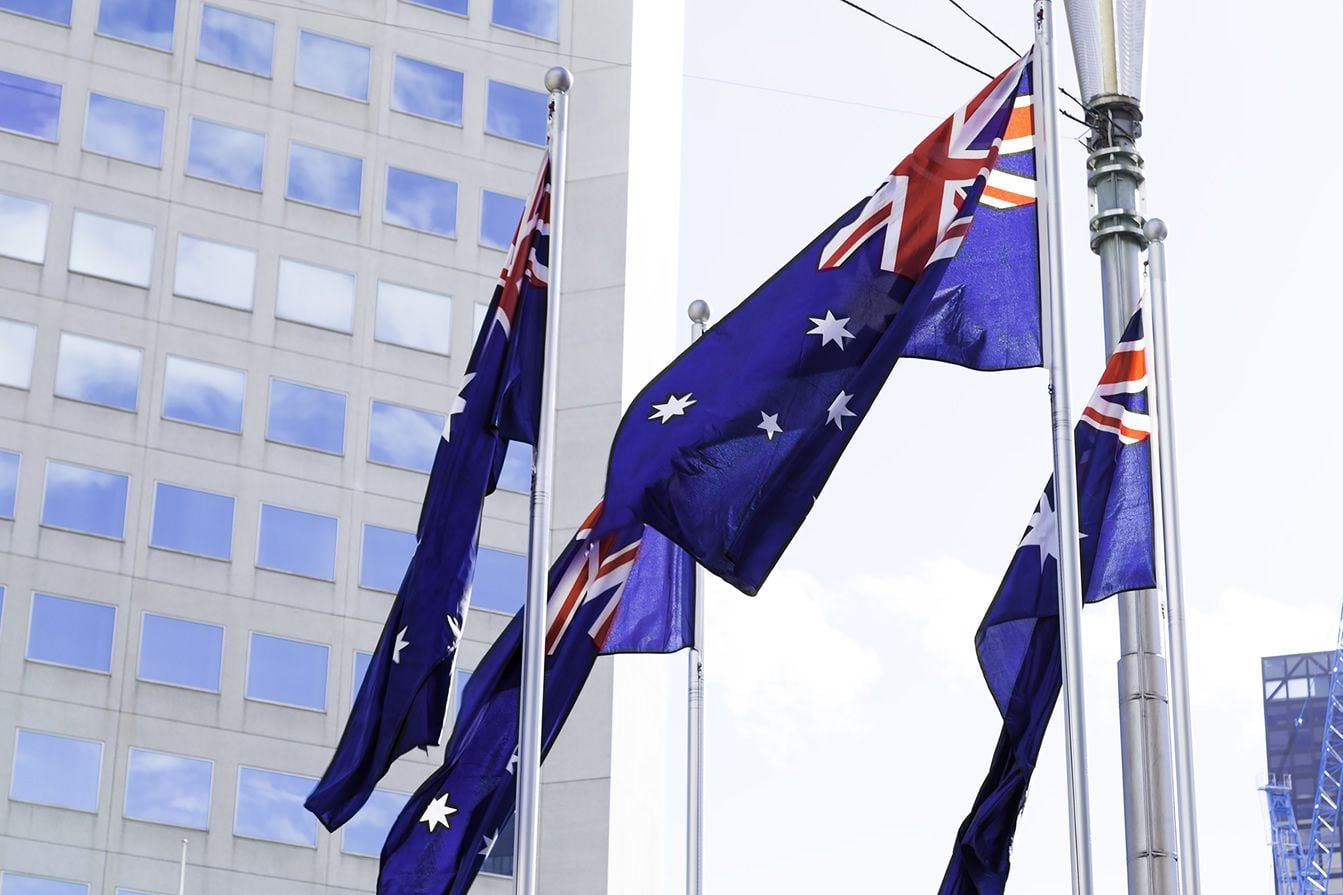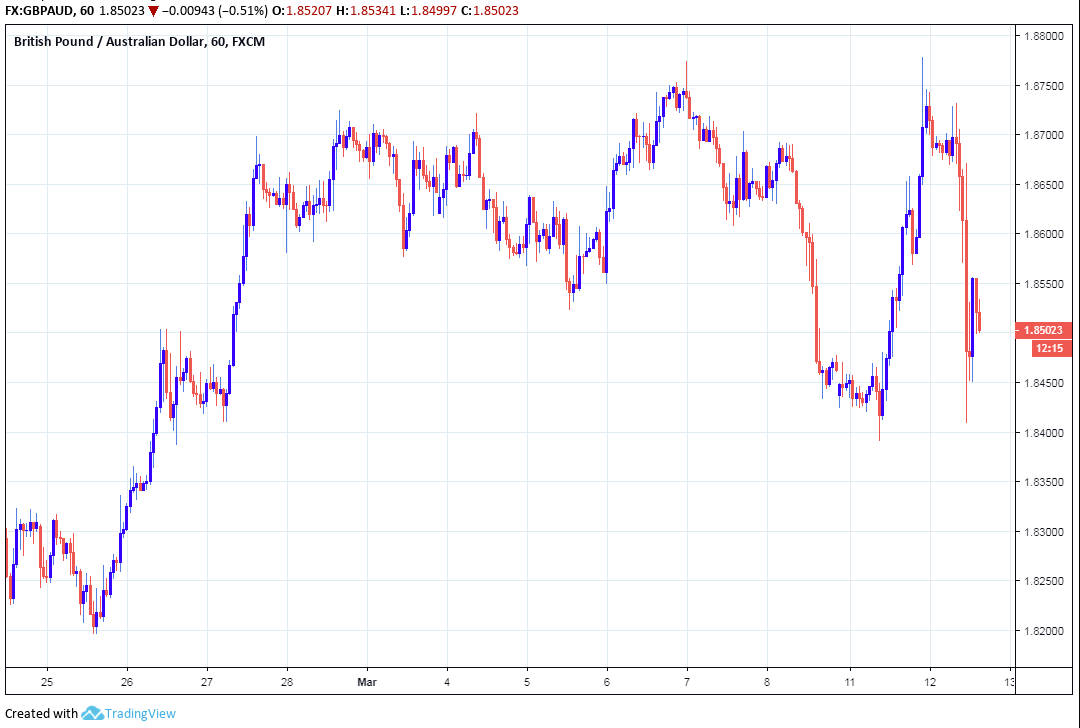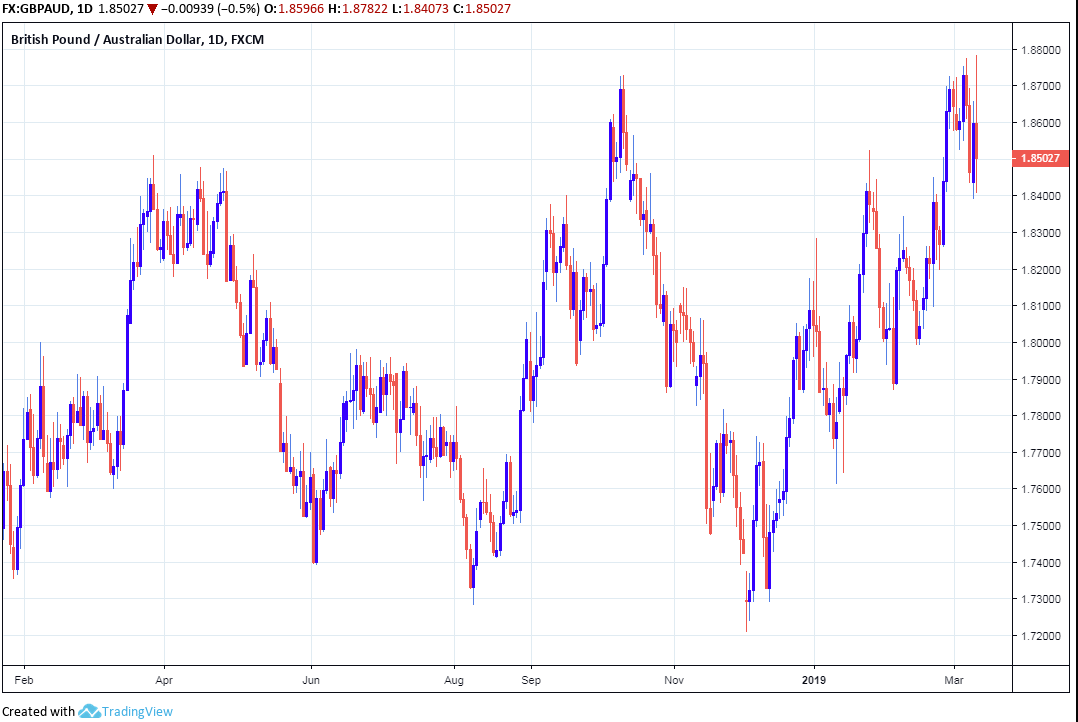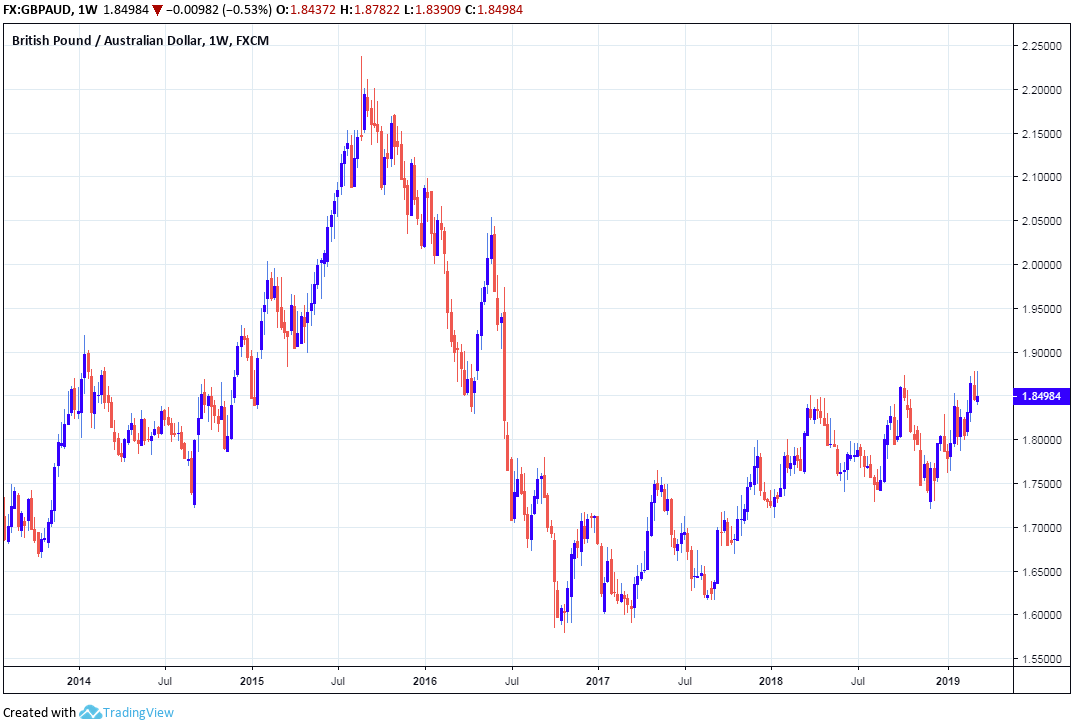The Pound-to-Australian-Dollar Rate is Still Close to Multi-month Highs but Volatility is Ahead
- Written by: James Skinner

© Filipe Frazao, Adobe Stock
- GBP still in sight of multi-month highs but more volatility is ahead.
- RTS Forex, SEB, BMO and TD Securities all eye further GBP losses.
- As Brexit showdown looms over London, possible election up ahead.
The Pound-to-Australian-Dollar rate remained within sight of multi-month highs Tuesday after having seen significant swings during the morning session, although analysts are warning that this volatility could continue for a while yet.
Sterling rallied resoundingly into the morning session Tuesday after Prime Minister Theresa May claimed to have secured legally binding changes to a key part of her Brexit deal, which should have been enough to enable a sufficient number of MPs to back the agreement in parliament.
However, advice from the government's top lawyer later claimed the changes negotiated by the PM do not deliver the assurance that members of parliament have demanded. That left too many MPs unable to support the government's EU withdrawal plan, sending the British currency tumbling in the process.
"The bill is expected to fail again, leading to another vote tomorrow on disallowing a no deal Brexit and another vote on Thursday about seeking a postponement. Sterling traders still favour the postponement, accounting for its giant move up yesterday. It can't last...all the options are terrible," says Barbara Rockefeller, of RTS Forex.

Above: Pound-to-Australian-Dollar rate shown at hourly intervals.
Tuesday sees the House of Commons vote on PM May's withdrawal agreement and analysts are warning that MPs will reject it for a second time, after voting against it in a record-breaking landslide of opposition back in January.
The agreement is an international treaty that has to be ratified before March 29 or the UK will automatically leave the EU and default to doing business with it on World Trade Organization (WTO) terms, unless an extension of the Article 50 window is agreed unanimously by EU leaders.
Rejection of the deal for a second time on Tuesday would give way to two separate votes over subsequent days that are aimed at providing parliament an opportunity to express it's preferred course of action.
"The Pound reflects the sinking optimism of traders forced to accept the increasing likelihood of a no vote and more uncertainty about the shape of Brexit," says Zoe Dawson-Williams, chief customer officer at Moneycorp. "Although volatility fatigue has been the constant companion of the markets, we appear to be entering a new phase where the sequence of events started by May’s package from Chequers last July is a game of checkers where fewer and fewer pieces are left to play."
Pound Sterling's volatility in response to the ebb and flow of Brexit headlines owes itself to the impact that a so-called no deal Brexit could have on the economy and Bank of England (BoE) interest rates over the long term. That would of course be bad for the currency.
Conventional wisdom within the analyst community says that leaving the EU will lead to slower economic growth and lower interest rates than otherwise would have been the case over both the short and long-term.

Above: Pound-to-Aussie rate shown at daily intervals.
"We’re sceptical that the rather “fuzzy” language contained within the joint statements will win over enough MPs (and the DUP) to trigger a majority. Moreover, there are still large numbers of MPs that remain opposed to the Agreement for entirely different reasons," says Stephen Gallo, European head of FX strategy at BMO Capital Markets. "Either way, there is so little time left for arm-twisting and legal interpretations in Westminster that we wouldn’t entirely rule out the meaningful vote being delayed."
Markets like PM May's Brexit proposal because it defers any exit until at least the end of 2020 and even then, the exit envisaged by the withdrawal agreement and future relationship declaration removes the UK from the under the EU's wing in legal terms, but little more than that.
This is because the withdrawal agreement means that if the UK cannot or will not satisfy the EU's demands in the next stage of the negotiations, government will be forced to choose between two unpalatable options.
That choice is between allowing the province of Northern Ireland to be annexed by the Republic of Ireland and European Union, or the UK remaining subordinate to the EU and subject to many of its laws on a potentially-indefinite basis and without any ability to influence those laws or institutions.
"Though the situation remains fluid, the vote is likely to fail following AG Cox's opinion. Indeed, this will make it difficult for PM May to secure Brexiteer support. The AG's decision has put GBP back into political limbo this week with renewed focus on the downside," warns Mazen Issa, an FX strategist at TD Securities.

Above: Pound-to-Aussie rate shown at weekly intervals.
Subsequent parliamentary ballots that are currently expected on Wednesday or Thursday will not bring the UK any closer to an orderly and negotiated exit from the EU. Instead they will at best, provide the illusion of insurance against a so-called no deal Brexit while simply kicking the can down the road a bit longer.
Under those planned ballots MPs would first get the option to make their opposition to a no deal Brexit clear, and then they would get the option to force the Prime Minister to return to Brussels and request an extension of the negotiating period.
Sterling has risen strongly during recent weeks because investors and analysts have been speculating that PM May's agreement would be rejected again and that parliament would then force her to kick the March 29 Brexit day further down the road.
However, some are now suggesting things might not get that far, and that even if they do a delay will not necessarily be a panacea for Pound Sterling.
“Tonight’s vote in the House of Commons must be the final destination for Theresa May. She has taken almost two years to negotiate a withdrawal deal to satisfy and hold together the Conservative party and has used three attempts in the House of Commons to win support for it. Should she fail a third time her deal and her exit strategy for taking the UK out of the EU would be dead,” says Richard Falkenhall, a strategist at SEB Bank.
Falkenhall and the SEB team say the Pound will see further losses over the coming days and weeks if PM May's deal is rejected Tuesday, as such an outcome could see the Prime Minister feel compelled to call a general election and resign from office.
Things could easily become more complicated than that though, because the governing Conservative Party would need to find a new leader before it could participate in an election, which is a process that normally takes around three months on its own.
Nonetheless, pressure to call a general election would focus the collective mind of the market on the opposition Labour Party and its policy agenda under its openly Marxist leader, Jeremy Corbyn.
Time to move your money? Get 3-5% more currency than your bank would offer by using the services of foreign exchange specialists at RationalFX. A specialist broker can deliver you an exchange rate closer to the real market rate, thereby saving you substantial quantities of currency. Find out more here.
* Advertisement




